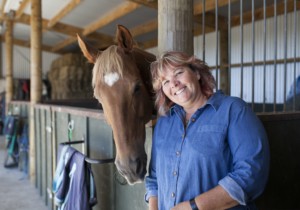 Leader: Professor Natalie Waran
Leader: Professor Natalie Waran
‘One Welfare’ is a novel concept involving the fields of human and animal health and welfare exploring complex social, cultural and scientific issues related to their interconnectedness in order to shape positive outcomes for all. ‘A ‘One Welfare’ approach involves the use of an evidence based interdisciplinary framework, balancing and promoting positive human and animal welfare in connected ecosystems and societies. ‘One Welfare’ provides an umbrella under which experts in animal welfare can collaborate with experts in human services – including social work, psychology, public health – to develop solutions that hopefully benefit the welfare of all species. A ‘One Welfare’ approach is especially relevant when devising and implementing interventions for improving standards of human and animal welfare in communities where animal and human lives are dependent upon each other, and where standards of animal and human health and welfare are often very poor.
“Human welfare, social welfare, and animal welfare have traditionally been seen as distinct disciplines. Human welfare deals with the mental state of individuals, social welfare deals with the balance of welfare across societies and generations, and animal welfare deals with the physical and mental well-being of the animal species we use for pleasure, labour, or food. We pose that the separation between human, social, and animal welfare is an artificial compartmentalization. These disciplines rely on the same set of scientific measures and heavily depend on each other in an ecological context. Their study, therefore, requires a broader, interdisciplinary approach. “
[One welfare: a call to develop a broader framework of thought and action by Tristan J. Colonius, DVM, and Rosemary W. Earley, DVM (JAVMA, Vol 242, No. 3, February 1, 2013)]
References for further information:
Waran, N 2012, ‘One Health – One Welfare: Can we sustain welfare standards in a food hungry world’ Advances in Animal Biosciences, Vol 3, no. 1, pp. 187
Waran 2013 ‘Animal welfare is important to human health’ http://news.xinhuanet.com/english/health/2013-04/18/c_132320429.htm ).
Pinillos, R. G., Appleby, M. C., Scott-Park, F., & Smith, C. W. (2015). One Welfare. Veterinary Record, 177(24), 629-630.
Professor Natalie Waran

With a first class zoology degree from Glasgow University and a PhD from Cambridge University, she has worked in many different countries including China, India, Malaysia, Singapore and Hong Kong.



